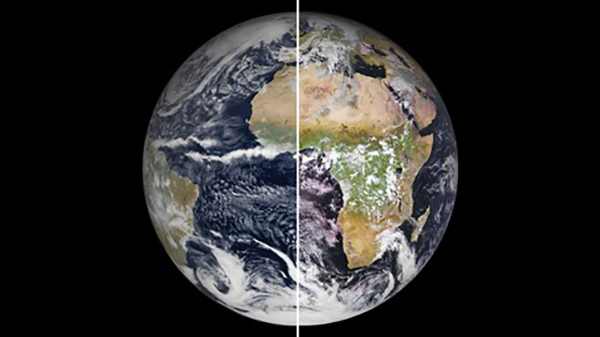Chaired by Laurent Boisnard, Sous-directeur adjoint, CNES and Christelle Loiselet, Expert engineer, BRGM
Beyond the outline of a very rich technological and applicative landscape from last year, the 2021 workshop will be the opportunity to address the emergence of digital twins, identified among the major trends of the coming decade.
Already set in the industrial landscape and coupled with simulation and continuous data assimilation to reproduce modeled objects as closely as possible, digital twins applied to the Earth system and standardization of satellite data could transform our capacities for analysis, prediction and anticipation for public decision-making.
This theme will be the guiding thread of the 2021 edition around the environment and climate, where ocean physics, forest fires, soil mapping and water management will be addressed. Intended to become a tool to help territories adapt to impacts of climate change, the Spatial Climate Observatory (SCO) will also be featured. Two projects will be presented with the study of urban heat islets and the safeguarding of rice fields in Vietnam. Officially launched in 2019 and mobilizing global expertise, the SCO keeps in line with the Paris international agreements and the 2030 Agenda for Sustainable Development.
 With 1 kilometer resolution, one European climate model (left) is almost is almost elusive compared to reality (right)
© ECMWF © EUMETSAT
With 1 kilometer resolution, one European climate model (left) is almost is almost elusive compared to reality (right)
© ECMWF © EUMETSAT